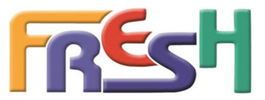Schools, agencies, systems For Recovery, Engagement, Social Inclusion and Health
The FRESH Framework
The framework, which was originally called Focusing Resources on Effective School Health (FRESH), has evolved over the years in recognition of emerging trends and needs. Similar to and supportive of the multiple sectors and inter-sectoral cooperation needed to achieve the UN 2030 Sustainable Development Goals, the common framework adopted by FRESH Partners retains a broad view of the many facets of health while engaging with other sectors working on different aspects of human development such as safety from violence & crime, equity, inclusion, relief & development aid, social and sustainable development. As the partnership continued its work, the focus on access to schooling, attendance and educational attainment has increased and become central to our discussions. We also emphasize that schools, other agencies and ministries need to address the needs of the whole child through a holistic core curriculum and broad educational goals as well as through health, social and other services that address their specific issue while recognizing its connection to the overall health and development of the child.
Consequently, we use the phrase "promoting educational success, health and development" and the FRESH icon as a way to reflect the shared goals of many multi-component approaches such as health promoting schools, child-friendly schools, school-health & nutrition, community schools, safe schools, education in emergencies and many others. The FRESH framework lists key components or "pillars" that are common to all of these approaches, These common components are ministry/agency/school policies, classroom and other forms of education/learning, health & other services, a safe, healthy physical environment and a positive social environment that includes student and parent involvement. The FRESH framework also lists essential cross-cutting themes such as intersectoral partnerships, country ownership, child rights and participation, contextualization of programs/strategies and communiuty participation. As well, the FRAMEWORK includes several topic/problem based themes or multi-intervention programs such as violence prevention, reducing risk from disasters, nutrition and many others. Practical and realistic indicators of progress have been developed for the original 15 topics and more are being developed for new topics such as mental health, child abuse/exploitation, bullying and family violence.
The FRESH framework positions the school as a hub within the community to serve students and families. Consequently, we are concerned about school-based and school-linked programs/initiatives that reach beyond the school to support parents, engage with community organizations and are part of regional or national strategies. As well, while we often use the term "school" in these discussions, research and experience has taught us that school-level initiatives or single-focus programs are insufficient and unsustainable without the full involvement of local/regional authorities and ministries in several sectors through long-term, capacity-building, systems-based, continuous improvement planning and action.
The framework, which was originally called Focusing Resources on Effective School Health (FRESH), has evolved over the years in recognition of emerging trends and needs. Similar to and supportive of the multiple sectors and inter-sectoral cooperation needed to achieve the UN 2030 Sustainable Development Goals, the common framework adopted by FRESH Partners retains a broad view of the many facets of health while engaging with other sectors working on different aspects of human development such as safety from violence & crime, equity, inclusion, relief & development aid, social and sustainable development. As the partnership continued its work, the focus on access to schooling, attendance and educational attainment has increased and become central to our discussions. We also emphasize that schools, other agencies and ministries need to address the needs of the whole child through a holistic core curriculum and broad educational goals as well as through health, social and other services that address their specific issue while recognizing its connection to the overall health and development of the child.
Consequently, we use the phrase "promoting educational success, health and development" and the FRESH icon as a way to reflect the shared goals of many multi-component approaches such as health promoting schools, child-friendly schools, school-health & nutrition, community schools, safe schools, education in emergencies and many others. The FRESH framework lists key components or "pillars" that are common to all of these approaches, These common components are ministry/agency/school policies, classroom and other forms of education/learning, health & other services, a safe, healthy physical environment and a positive social environment that includes student and parent involvement. The FRESH framework also lists essential cross-cutting themes such as intersectoral partnerships, country ownership, child rights and participation, contextualization of programs/strategies and communiuty participation. As well, the FRAMEWORK includes several topic/problem based themes or multi-intervention programs such as violence prevention, reducing risk from disasters, nutrition and many others. Practical and realistic indicators of progress have been developed for the original 15 topics and more are being developed for new topics such as mental health, child abuse/exploitation, bullying and family violence.
The FRESH framework positions the school as a hub within the community to serve students and families. Consequently, we are concerned about school-based and school-linked programs/initiatives that reach beyond the school to support parents, engage with community organizations and are part of regional or national strategies. As well, while we often use the term "school" in these discussions, research and experience has taught us that school-level initiatives or single-focus programs are insufficient and unsustainable without the full involvement of local/regional authorities and ministries in several sectors through long-term, capacity-building, systems-based, continuous improvement planning and action.
